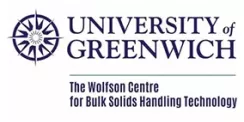During the course we'll cover subjects including system components, design techniques, operation and control of blow tank systems, explosion hazards and operational problems. The course also deals with the important but often neglected area of interfacing storage bins with conveying systems.
You will learn:
- Techniques for reducing product degradation during conveying
- Ways to reduce maintenance, repair and unplanned stoppages to pneumatic conveying equipment
- Methods of reducing energy consumption
- How to troubleshoot problematic systems
- How to eliminate blockages in pneumatic pipelines
- Explosion Hazards including ATEX Directives
- Operation and control of blow tanks
- System selection and operation
- Interfacing storage bins to conveying systems
- Relevant case studies from industry
Course dates
16 - 17 May 2023 / Practical Workshop 18 May 2023
7 - 8 November 2023 / Practical Workshop 9 November 2023
Course Fee
2 day course: £825 per delegate (this fee includes all refreshments and lunch through the day as well as an evening meal on the first night of the course)
Practical workshop: £435 per delegate
Discountsdiscounts cancellations are available for group bookings and returning delegates.
Registration
Registration and payment is available via the online shoppneumatic conveying of bulk materials
Format
This course emphasises the practical aspects of technology. We'll begin with a comprehensive introduction to give a basic understanding of the operation of pneumatic pipelines, before moving on to more detailed work.
We'll use case studies throughout to illustrate the presentations, with plenty of discussion periods so that we can analyse any specific problems experienced by attendees.
For those delegates staying for the practical workshop, there will be demonstrations and discussions involving relevant equipment in our laboratories.
Subjects covered
- Introduction to pneumatic conveying
- Troubleshooting
- Designing out potential problems
- Practical examples
- Dilute and dense phase conveying explained
- Selecting the correct hardware for your application
- Matching appropriate feeders to pneumatic systems
- Dust control methodology
- Practical design considerations
- Elimination of explosion hazards
- Positive and negative pressure systems
For those wanting a more in-depth look at Pneumatic Conveying System Design an advanced course has been designed. See here for detailsadv pc.
Practical Workshop
The workshop will allow delegates the opportunity to participate in demonstrations using some of the equipment discussed in the course. For more information on the workshops please see herepractical workshops
Is this for me?
If you are a plant designer, plant manager or work in maintenance, this course will improve your ability to deal with the design and troubleshooting of plants.
You'll also benefit if you are from operational staff or senior management through a better understanding of what can go wrong and how to make your plant as efficient and trouble-free as possible. The course is ideal for those new to materials handling, those who require an update on the subject, or those who need a working knowledge of a wide variety of materials handling technologies.
Venue
The course and workshop will take place at the University of Greenwich Medway campus in Kent ME4 4TB
Course Team
The course leader is Mike Bradley, Professor of Bulk and Particulate Technologiesrichard farnish and Director of The Wolfson Centre. He has worked internationally on design and troubleshooting of bulk solids handling as a commercial consultant and research expert for over twenty years.
Contributions may also be made from the rest of the Team, including
Richard Farnishrichard farnish who has over twenty years' experience in commercial design work related to materials handling.
Dr Baldeep Kaur, whose interests lie in characterisation and transportation of bulk materials;
Dr Lucas Massaro Sousalucas massaro sousa, whose interests lie in fluidisation, solid feeding devices and CFD simulation;
Dr Atul Sharmaatul sharma, whose interests lie in pneumatic conveying systems.
Please note that The Wolfson Centre reserves the right to substitute leaders of equal quality should this be dictated by circumstances beyond their control.
■






